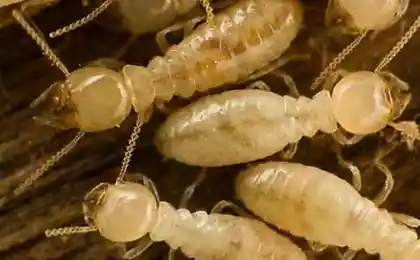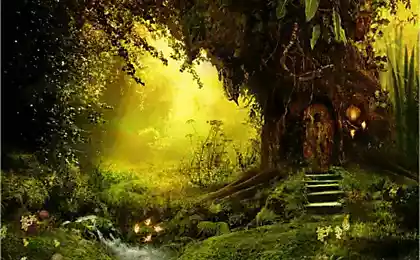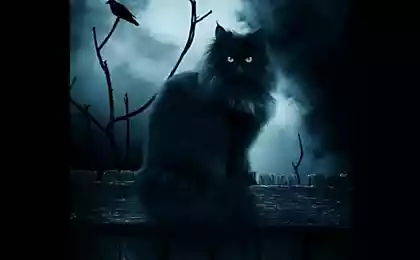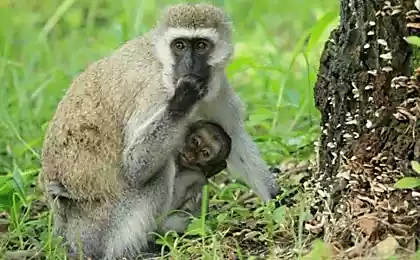840
The most unusual creatures and creations of nature
Lamprey
Lampreys are jawless fish type that lives mainly in coastal and fresh waters. Adults are characterized by a funnel-toothed mouth. They attach themselves to the fish and suck its blood. Lamprey appeared on Earth 300 million years ago
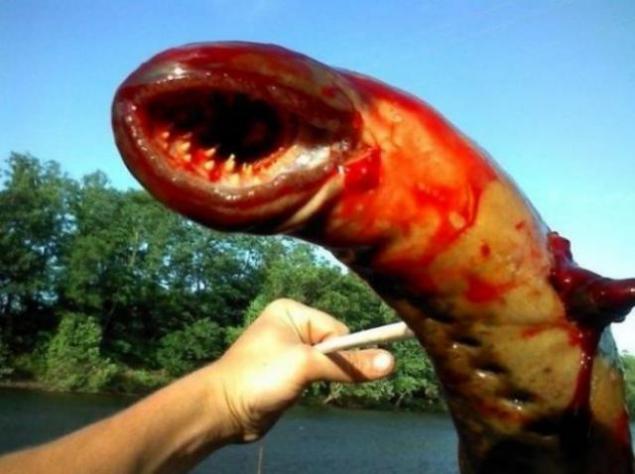
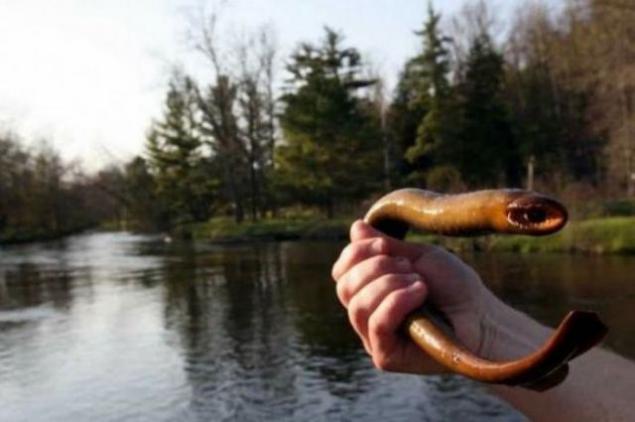
Red Wolf
Red wolf belongs to the species of canids, and he hails from South and Southeast Asia. He is closer to the wild dogs live in packs, practicing group hunting. First of all, they prey on medium ungulates, which they tire in long chases. They are afraid of the people, although they are bold enough to attack the large and dangerous animals such as wild boar, buffalo and even a tiger.
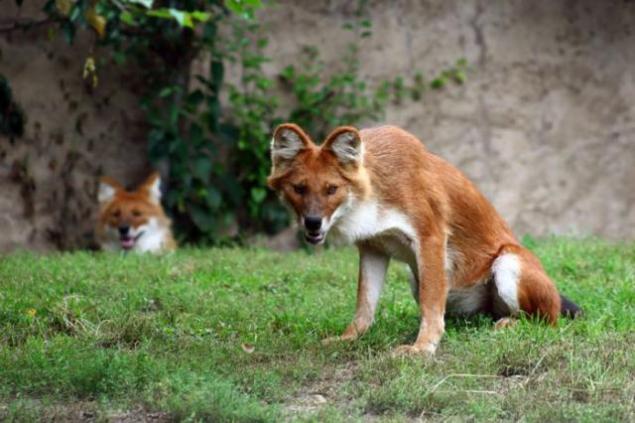
Babirussa
Babirussa or "pig-deer" is a member of a family of pigs and found only on the Indonesian island of Sulawesi, Togiyan, Sula and Buru. Babirussa constantly grind their "horns", because they grow without stopping. If they did not, the horn would grow into the skull and knock him
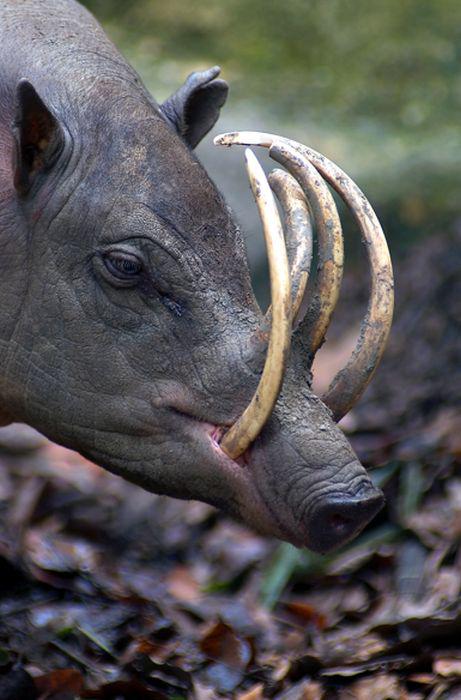
Pink fairy armadillo
Pink fairy armadillo about 10 centimeters in length. For the second battleship converted into an impregnable fortress. It is a nocturnal animal that lives in burrows and feeds mainly on ants. It uses a large front claws to dig, it also nice to swim.
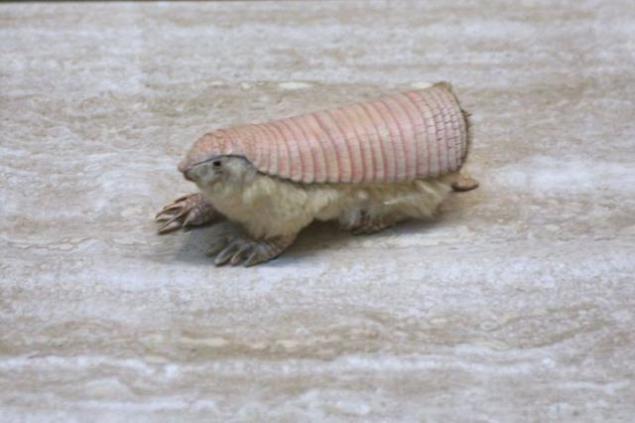
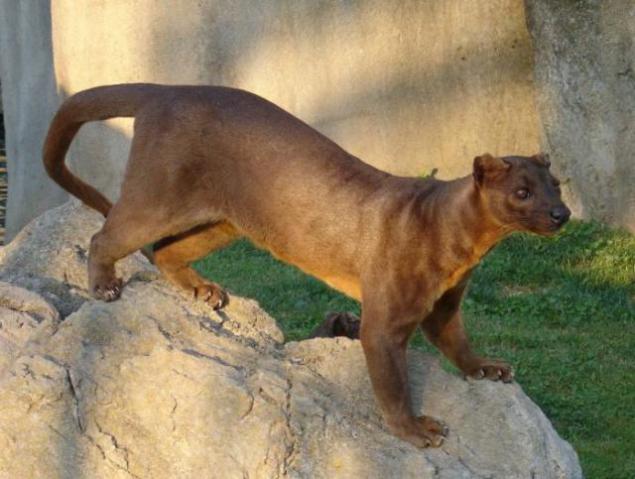
Foss
Voss is the largest mammalian predator on the island of Madagascar. The size of it is a cougar. It has a semi-retractable claws and flexible ankles that allow it to climb up and down trees head up.
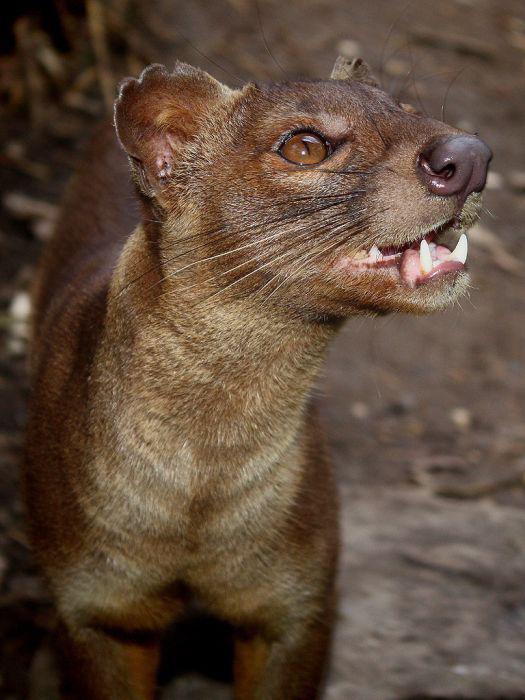
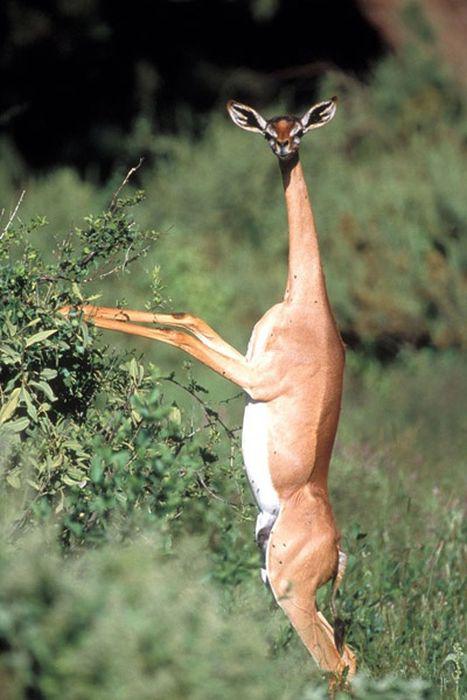
Gerenuk
Gerenuk, also known as the Waller's gazelle. This kind of long-necked antelope, which can be found in East Africa. Gerenuk with Somali translates as "the giraffe's neck." Gerenuk have a comparatively small head with respect to their body, with their eyes and ears are very large in proportion. Gerenuk rarely graze, they mainly feed on acacia. In order to reach the highest branches, they often stand on their hind legs.
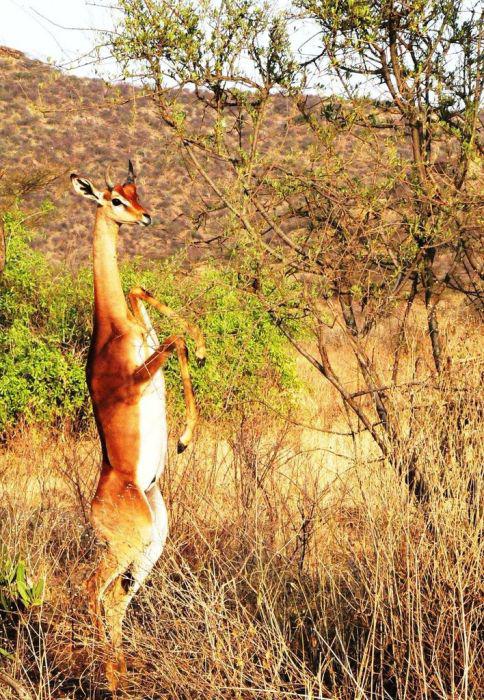
The naked mole rat
This creature has many features that make it very important for people. On the one hand it is resistant to cancer. And they live up to 28 years, which is unprecedented in mammals of its size. At the same time in the form of a naked mole rat absolutely never gets old for these 28 years. He is constantly exploring and trying to use it to find a cure for cancer and the means to stop the aging
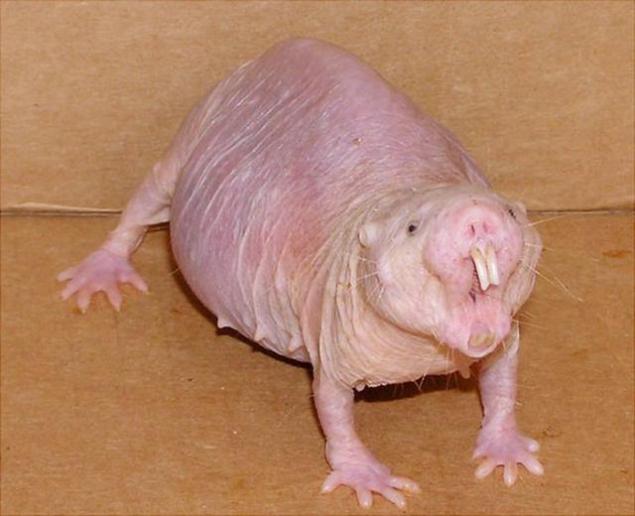
Irrawaddy dolphins
These dolphins is one of the species of oceanic dolphins. They can be found near the coast and estuaries in the Bay of Bengal and South-East Asia. Genetically, the Irrawaddy dolphin is very close to the orca.
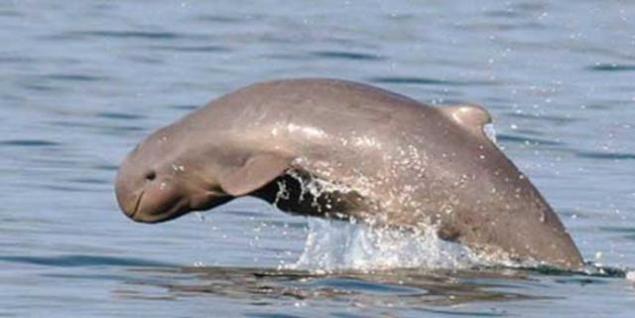
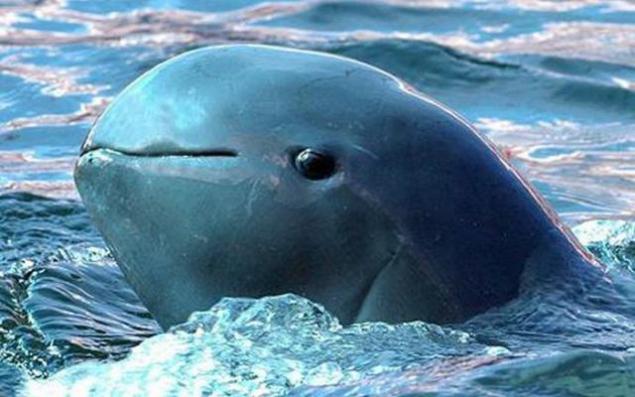
Markhor
Markhor - species of wild goat that lives in the northeast of Afghanistan and Pakistan. They have no more than 2500 individuals. Markhor is a national symbol of Pakistan. Incidentally, the markhor is not so simple. That foam, which is produced during mastication helps people in the bites of poisonous snakes.
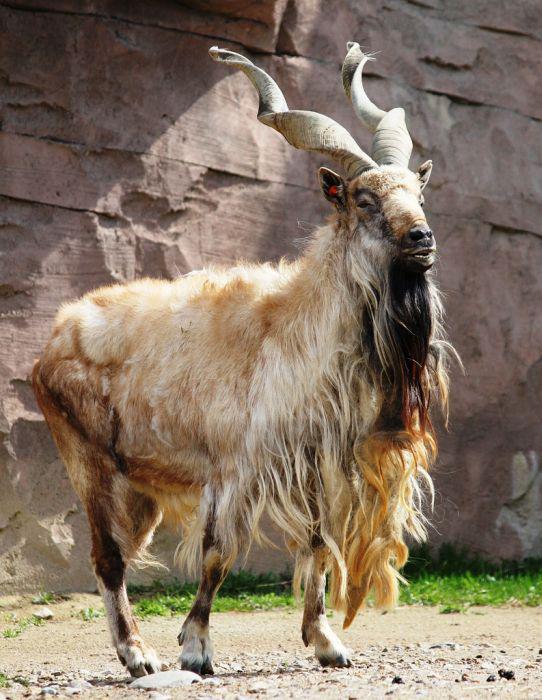
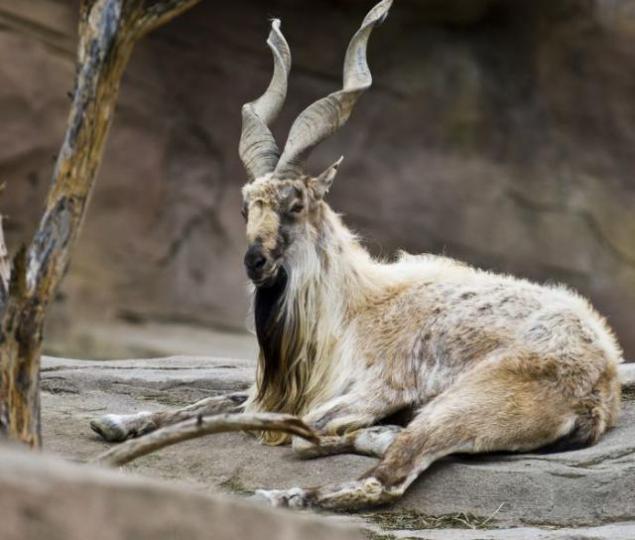
Yeti Crab
Also known as Kivaydae. But as a rule, they are called "Yeti crab," because they are completely white and seem very fluffy.
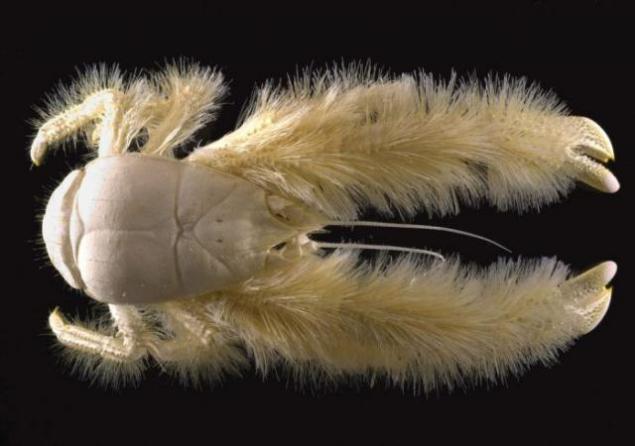
Snub-nosed monkey (or snub-nosed monkey)
Snub-nosed monkeys live in different parts of Asia, and got its name from a short nose and a round face. Snub-nosed monkeys inhabit mountain forests and in winter descend. They spend most of their lives in trees and live in flocks of up to 600 individuals. They have a large vocal repertoire, and they love to perform solo.
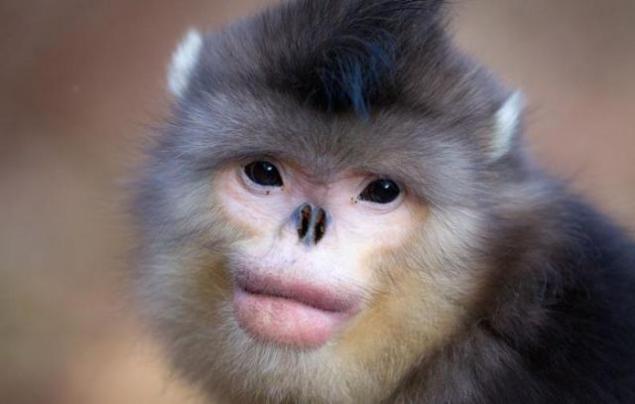
Maned wolf
Maned wolf - the largest canid mammal in South America, and it looks like a big fox with reddish fur. This mammal lives in open and semi-open spaces. Long legs - a way to adapt to the high grass.
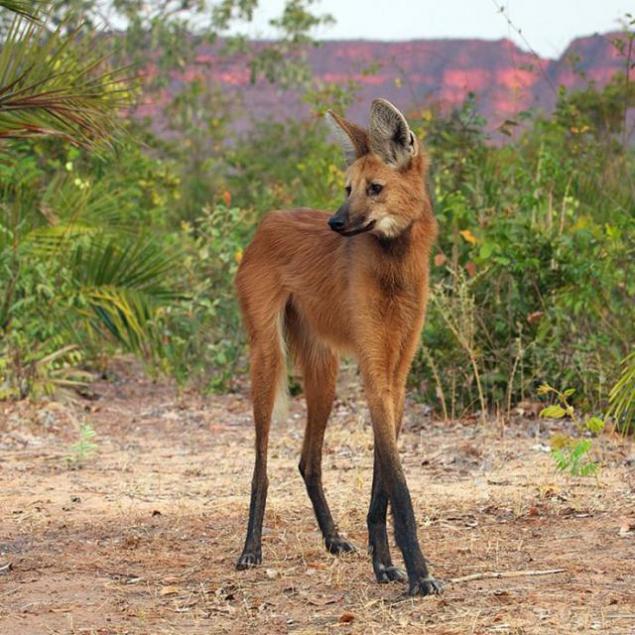
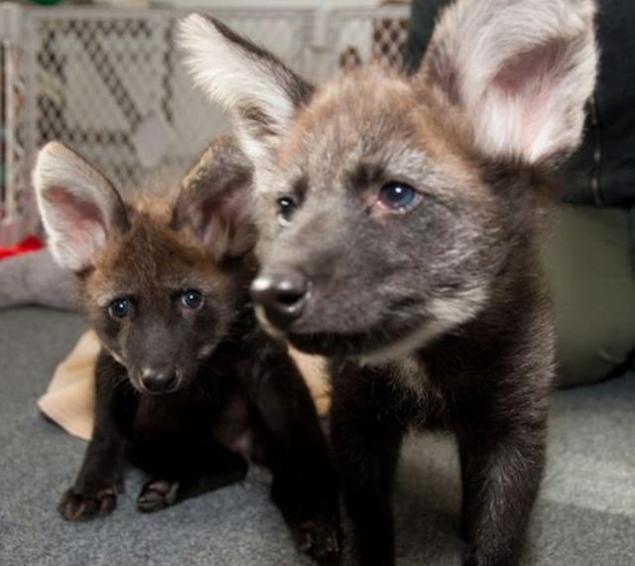
Indian muntjac
He found in South Asia. It is omnivorous. He ate grass, fruits, sprouts, seeds, eggs, birds and small animals and carrion. If he sees a predator, he barks like a dog. Males of behavior are very similar to dogs. They bite like dogs and fight for territory and females.
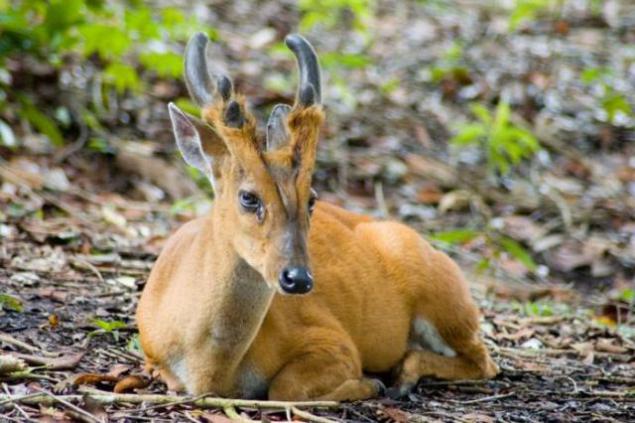
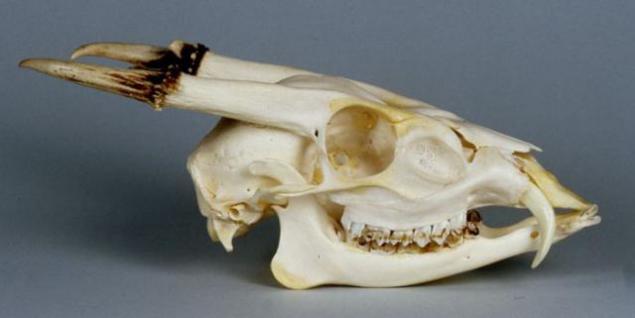
Cyphonia Clavata
This kind of wood flies, but most of all it looks like an ant. In fact, the part that is most similar to an ant - an appendage, which is ready to fly with ease to leave in the event of attack by a predator.
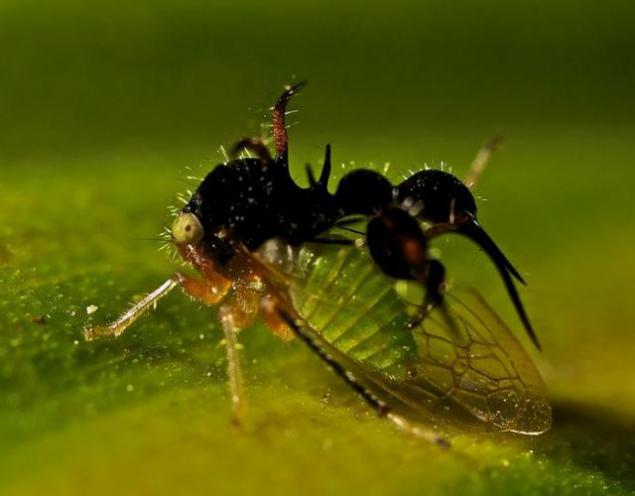
Sunda Colugo
Also known as the Sunda Flying Lemur, but in fact it is not a lemur, and he obviously does not fly. Instead, he jumps and plans among the trees. He lives only in the trees, is active at night and feeds it soft plant parts such as young leaves, shoots, flowers and fruits. It can be found all over Southeast Asia, specifically in Indonesia, Thailand, Malaysia and Singapore
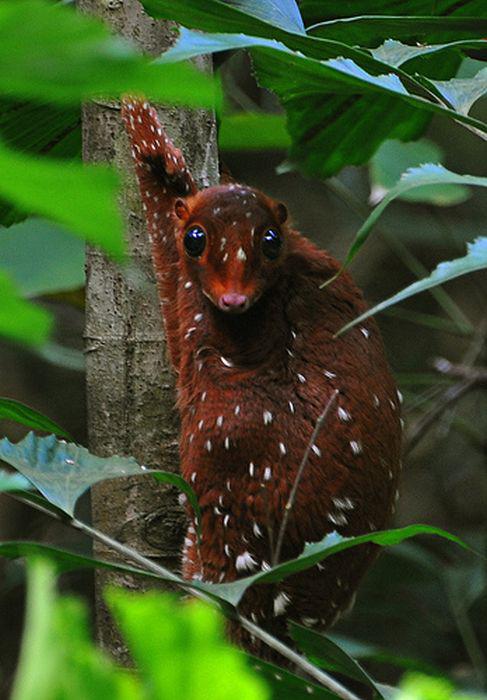
Tufted deer
Tufted deer has a black bundle of fur on the forehead and explicit fangs. It is a close relative of muntjac, but he lives a little north, mainly in China. It is timid, lonely animal.
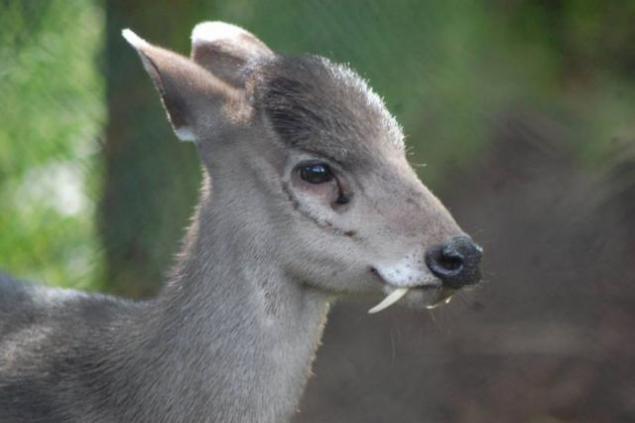
Raccoon dog
Raccoon dog or tanuki is a native canid species in East Asia. Raccoon dog is so named because of the strong similarity to the raccoon, to whom she is not related. By the way, they are very good climbers.
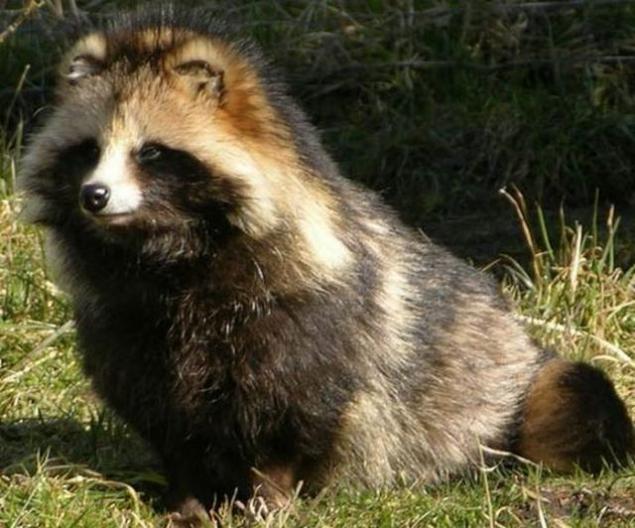
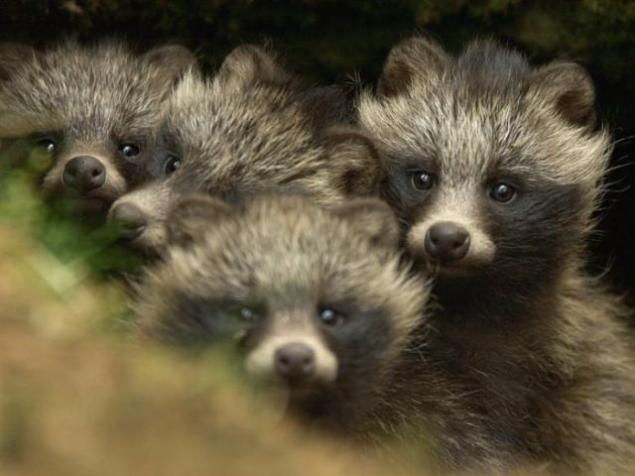
Patagonian Mara
Patagonian Mara - is a relatively large rodent living in some areas of Argentina. This herbivore, which is very similar to the rabbit, but does not have any relationship with him.
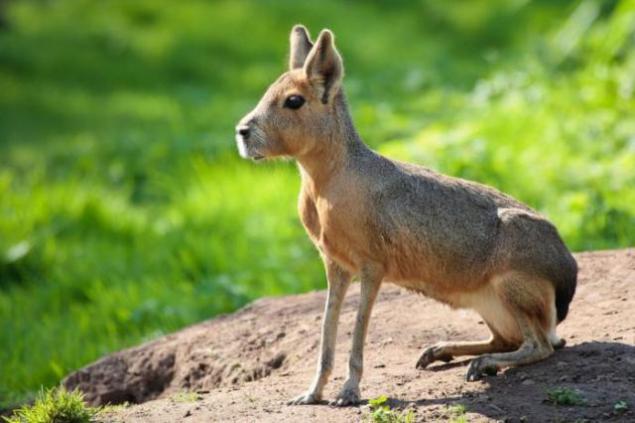
Amazonian Royal Flycatcher
Amazonian Royal Flycatcher, as you may guess, is found only in the Amazon. They are very small, and feed on flying insects. For their size, they build very large nests of up to two meters in diameter. The nest is hanging over the water, and so it is not easily accessible to predators.
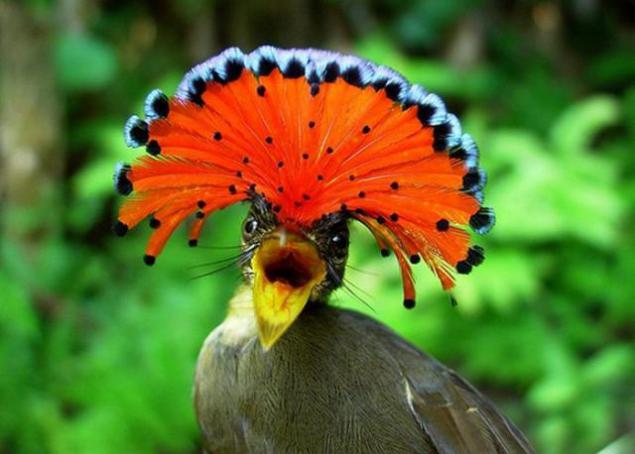
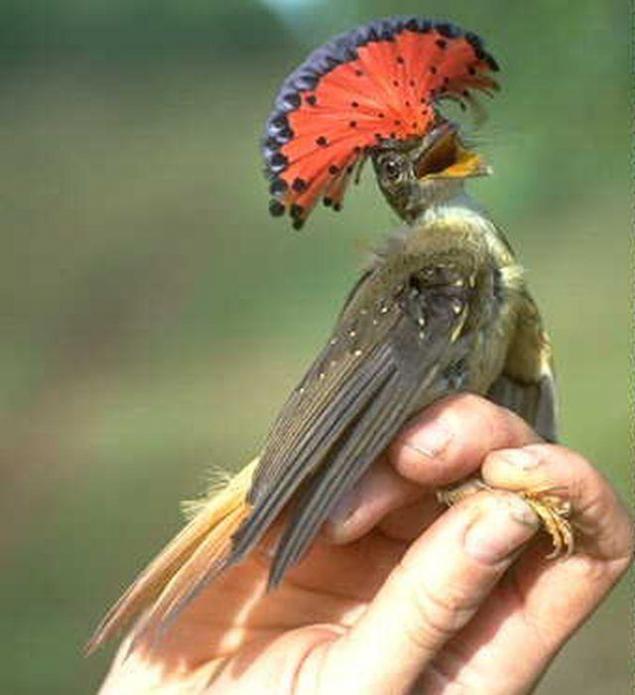
Zebra duiker
Zebra duiker - small antelope from Côte d'Ivoire. They have gold or red-brown fur with characteristic zebra stripes. Hence the name. They live in tropical forests and feed on the leaves and fruit
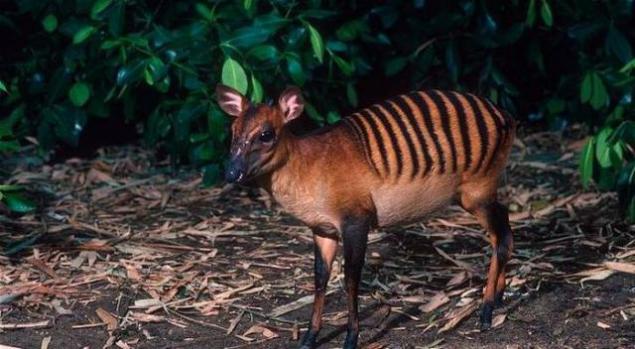
Star-nosed mole
Star-nosed mole - a mole that lives in humid areas in eastern Canada and the northeastern United States. He has 11 pairs of pink fleshy appendages that are used as a sensory organ.
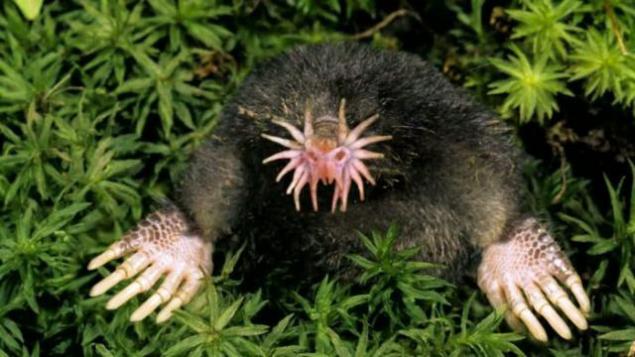
From
Lampreys are jawless fish type that lives mainly in coastal and fresh waters. Adults are characterized by a funnel-toothed mouth. They attach themselves to the fish and suck its blood. Lamprey appeared on Earth 300 million years ago


Red Wolf
Red wolf belongs to the species of canids, and he hails from South and Southeast Asia. He is closer to the wild dogs live in packs, practicing group hunting. First of all, they prey on medium ungulates, which they tire in long chases. They are afraid of the people, although they are bold enough to attack the large and dangerous animals such as wild boar, buffalo and even a tiger.

Babirussa
Babirussa or "pig-deer" is a member of a family of pigs and found only on the Indonesian island of Sulawesi, Togiyan, Sula and Buru. Babirussa constantly grind their "horns", because they grow without stopping. If they did not, the horn would grow into the skull and knock him

Pink fairy armadillo
Pink fairy armadillo about 10 centimeters in length. For the second battleship converted into an impregnable fortress. It is a nocturnal animal that lives in burrows and feeds mainly on ants. It uses a large front claws to dig, it also nice to swim.


Foss
Voss is the largest mammalian predator on the island of Madagascar. The size of it is a cougar. It has a semi-retractable claws and flexible ankles that allow it to climb up and down trees head up.


Gerenuk
Gerenuk, also known as the Waller's gazelle. This kind of long-necked antelope, which can be found in East Africa. Gerenuk with Somali translates as "the giraffe's neck." Gerenuk have a comparatively small head with respect to their body, with their eyes and ears are very large in proportion. Gerenuk rarely graze, they mainly feed on acacia. In order to reach the highest branches, they often stand on their hind legs.

The naked mole rat
This creature has many features that make it very important for people. On the one hand it is resistant to cancer. And they live up to 28 years, which is unprecedented in mammals of its size. At the same time in the form of a naked mole rat absolutely never gets old for these 28 years. He is constantly exploring and trying to use it to find a cure for cancer and the means to stop the aging

Irrawaddy dolphins
These dolphins is one of the species of oceanic dolphins. They can be found near the coast and estuaries in the Bay of Bengal and South-East Asia. Genetically, the Irrawaddy dolphin is very close to the orca.


Markhor
Markhor - species of wild goat that lives in the northeast of Afghanistan and Pakistan. They have no more than 2500 individuals. Markhor is a national symbol of Pakistan. Incidentally, the markhor is not so simple. That foam, which is produced during mastication helps people in the bites of poisonous snakes.


Yeti Crab
Also known as Kivaydae. But as a rule, they are called "Yeti crab," because they are completely white and seem very fluffy.

Snub-nosed monkey (or snub-nosed monkey)
Snub-nosed monkeys live in different parts of Asia, and got its name from a short nose and a round face. Snub-nosed monkeys inhabit mountain forests and in winter descend. They spend most of their lives in trees and live in flocks of up to 600 individuals. They have a large vocal repertoire, and they love to perform solo.

Maned wolf
Maned wolf - the largest canid mammal in South America, and it looks like a big fox with reddish fur. This mammal lives in open and semi-open spaces. Long legs - a way to adapt to the high grass.


Indian muntjac
He found in South Asia. It is omnivorous. He ate grass, fruits, sprouts, seeds, eggs, birds and small animals and carrion. If he sees a predator, he barks like a dog. Males of behavior are very similar to dogs. They bite like dogs and fight for territory and females.


Cyphonia Clavata
This kind of wood flies, but most of all it looks like an ant. In fact, the part that is most similar to an ant - an appendage, which is ready to fly with ease to leave in the event of attack by a predator.

Sunda Colugo
Also known as the Sunda Flying Lemur, but in fact it is not a lemur, and he obviously does not fly. Instead, he jumps and plans among the trees. He lives only in the trees, is active at night and feeds it soft plant parts such as young leaves, shoots, flowers and fruits. It can be found all over Southeast Asia, specifically in Indonesia, Thailand, Malaysia and Singapore

Tufted deer
Tufted deer has a black bundle of fur on the forehead and explicit fangs. It is a close relative of muntjac, but he lives a little north, mainly in China. It is timid, lonely animal.

Raccoon dog
Raccoon dog or tanuki is a native canid species in East Asia. Raccoon dog is so named because of the strong similarity to the raccoon, to whom she is not related. By the way, they are very good climbers.


Patagonian Mara
Patagonian Mara - is a relatively large rodent living in some areas of Argentina. This herbivore, which is very similar to the rabbit, but does not have any relationship with him.

Amazonian Royal Flycatcher
Amazonian Royal Flycatcher, as you may guess, is found only in the Amazon. They are very small, and feed on flying insects. For their size, they build very large nests of up to two meters in diameter. The nest is hanging over the water, and so it is not easily accessible to predators.


Zebra duiker
Zebra duiker - small antelope from Côte d'Ivoire. They have gold or red-brown fur with characteristic zebra stripes. Hence the name. They live in tropical forests and feed on the leaves and fruit

Star-nosed mole
Star-nosed mole - a mole that lives in humid areas in eastern Canada and the northeastern United States. He has 11 pairs of pink fleshy appendages that are used as a sensory organ.

From











